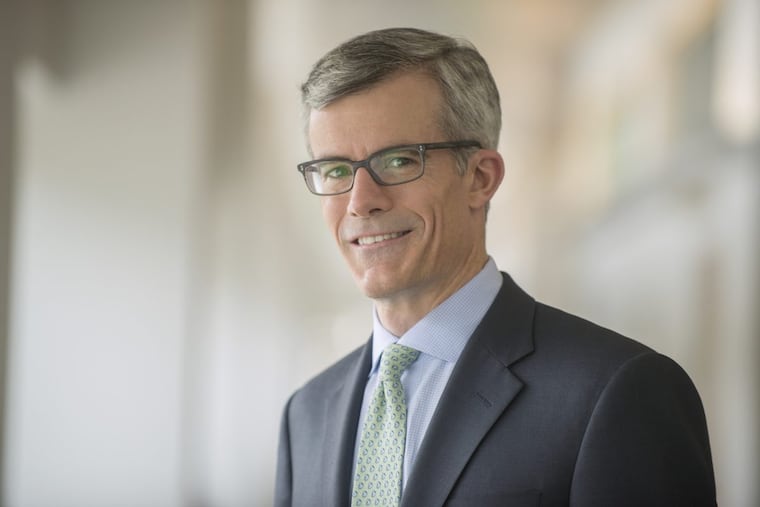New CEO Buckley, on running Vanguard: 'You have to be willing not to be a billionaire'
The mutual-fund giant owns more than 5 percent of U.S. stocks. Says its next CEO, Tim Buckley: "Companies realize we're going to be around even longer than management … People find their way to Malvern to talk to us."

Mortimer "Tim" Buckley takes over next month as Vanguard Group's fourth chief executive since John C. Bogle started the Malvern investment group in 1975. The company is red-hot, adding $1 billion a day from customers seeking low-fee index funds and other products. Assets could top $5 trillion next year.
Buckley made an early public appearance as boss-to-be in New York, addressing Ritholtz Asset Management's Nov. 2 Evidence-Based Investing Conference in remarks guided by firm head Barry Ritholtz, who manages about $600 million, including Vanguard exchange-traded funds.
Following are some highlights of Buckley's comments.
On his way to the top: "I was fortunate to [head] information technology, retail, and investments. If you marry the three together, you can make better decisions. … I've been very lucky to work for all three of our previous CEOs. From Jack Bogle, I learned the founding investment principles. Jack Brennan, there's no one better at driving people to achieve what they need to do. Bill McNabb, he's a master of teams."
What keeps him up nights? "Cybersecurity … I was driving my kids to soccer practice when they heard the announcement. My 9-year-old didn't know what a CEO was. My 13-year-old said, 'Dad, congratulations, that's pretty awesome! But how do you sleep? You have $4.7 trillion. You've got millions of shareholders. What if Vanguard were hacked?' And then he gets out of the car and leaves Dad alone. (Laughter.) It's front of mind all the time."
On "social" investing: "For how many of you here today is this front of mind? Just a smattering. … Traditionally, social investing has been exclusionary. No big oil. No munitions companies. You are taking the social morals of some and imposing it on the people. You can never get them to agree. … Should we be making a positive selection" of companies improving the environment?
On Vanguard ownership of more than 5 percent of U.S. stocks: "These companies realize we're permanent shareholders. We're going to be around even longer than management. … Once they realize we vote the shares, it's surprising how many people find their way to Malvern to talk to us."
"The Vanguard effect" on fees: Rival funds "won't cut their fees all around. They only do it where they can compete with Vanguard."
On his days as a young apprentice to founder Bogle: "You learned to work hard. You learned to do your math correctly. There was a lot of analysis. He's quantitative. Very evidence-based. He is very purpose-driven, and it permeates throughout Vanguard."
On taking the top job in a bull market: "What's the alternative? To step into a mess? Vanguard is in an incredible position. But if this is a 50-rung ladder, we're only on rung No. 3. We have had great impact with indexed and exchange-traded funds, with low-cost index funds. We are not done. We are looking to lower the cost and complexity for investors. There's a lot we can do for advisers, product or tools. There's a lot we can do overseas. There's a lot we can do indirectly."
Will Vanguard sell more than funds? "We don't really have the hubris to think we can be great in the insurance market. We don't know that market. Banking? A lot of people fled banking. I will never say never, but it would be hubris to think we could move into those markets."
On running Vanguard, which is owned by its funds: "You have to be willing not to be a billionaire."
Will growth force change? "As soon as Vanguard isn't mutual, you'd have to have outside shareholders. … You'd have to have a [profit] margin, instead of zero. It would undermine the strategic purpose of Vanguard. If we demutualize, you can kill the company. It's not going to happen."